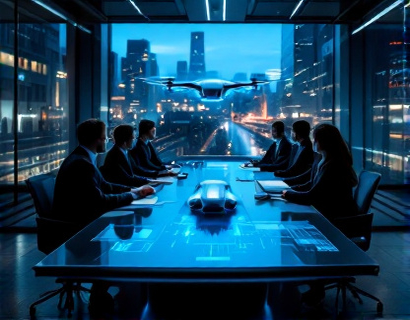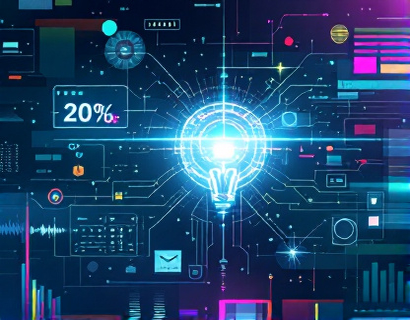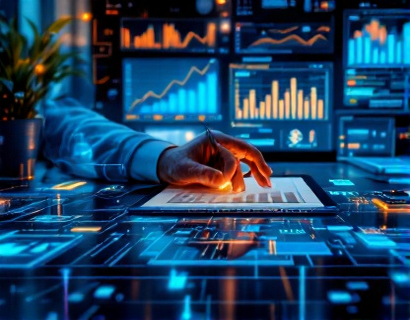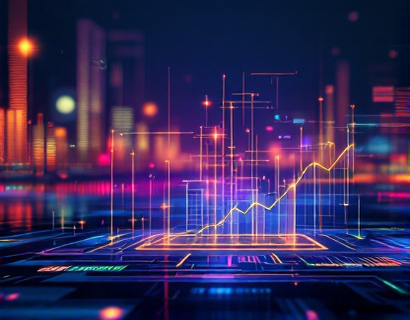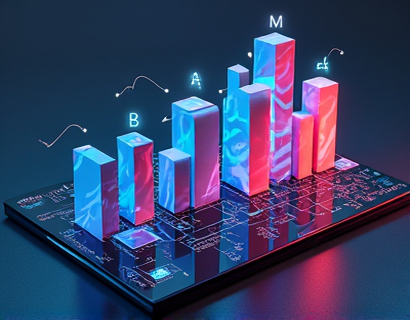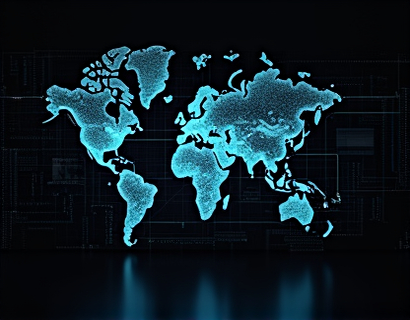Crypto and AI Synergy: Transforming Digital Engagement
The intersection of cryptocurrency and artificial intelligence (AI) is giving rise to a new era of digital engagement, one that promises to revolutionize how we interact with technology and each other. This synergy is not just about combining two powerful technologies but about creating a seamless and enhanced user experience that drives growth and innovation across the tech ecosystem. As we delve into this topic, it's essential to understand the foundational elements of both crypto and AI, and how their convergence is reshaping the digital landscape.
Understanding Cryptocurrency and AI
Cryptocurrency, often referred to as digital or virtual currency, operates on a decentralized network known as blockchain. This technology ensures transparency, security, and immutability in transactions, eliminating the need for intermediaries such as banks. The most well-known cryptocurrency, Bitcoin, was launched in 2009, but the concept has since expanded to include thousands of altcoins, each with unique features and use cases.
Artificial intelligence, on the other hand, involves the simulation of human intelligence processes by machines, particularly computer systems. These processes include learning (the acquisition of information and rules for using it), reasoning (using rules to reach approximate or definite conclusions), and self-correction. AI technologies such as machine learning, natural language processing, and computer vision are rapidly advancing, finding applications in various sectors from healthcare to finance.
Synergy Between Crypto and AI
The synergy between cryptocurrency and AI is multifaceted, with each technology enhancing the capabilities of the other. One of the primary areas of convergence is in the realm of smart contracts. Smart contracts are self-executing contracts with the terms of the agreement directly written into code. When combined with AI, these contracts can become more dynamic and intelligent, adapting to changing conditions and executing complex tasks autonomously. This integration can streamline processes in areas such as supply chain management, real estate, and legal agreements, making them more efficient and trustworthy.
Another significant area is in the enhancement of user authentication and security. AI-driven biometric systems, when paired with blockchain's secure and decentralized nature, can provide robust and secure identity verification methods. This combination reduces the risk of fraud and enhances user trust, which is crucial in the digital economy.
Enhanced User Experiences
The convergence of crypto and AI is not just about backend processes; it's fundamentally about transforming user experiences. One of the most promising applications is in personalized content delivery. AI algorithms can analyze vast amounts of user data to understand preferences and behaviors, allowing for highly personalized content recommendations. When this is combined with cryptocurrency, it opens up new models for content monetization and distribution. For instance, creators can use blockchain to tokenize their content, allowing fans to purchase unique digital assets or support their favorite artists directly through cryptocurrency transactions.
Furthermore, AI-powered chatbots and virtual assistants can be integrated into crypto platforms to provide users with real-time support and guidance. These AI systems can handle a wide range of tasks, from answering common questions to assisting with transactions, thereby enhancing the overall user experience. The use of natural language processing (NLP) ensures that interactions are natural and intuitive, making the platform more accessible to a broader audience.
Decentralized Finance (DeFi) and AI
Decentralized Finance (DeFi) is a rapidly growing sector that leverages blockchain technology to create financial services without traditional intermediaries. AI plays a crucial role in enhancing the functionality and efficiency of DeFi platforms. For example, AI can be used to predict market trends, optimize trading strategies, and manage risks. Smart contracts powered by AI can automate complex financial operations, such as lending and borrowing, with higher precision and lower costs.
Moreover, AI-driven analytics can provide insights into user behavior and market dynamics, helping DeFi platforms to improve their services and offerings. This data-driven approach ensures that DeFi solutions are not only innovative but also practical and user-friendly, fostering greater adoption and trust in the decentralized financial ecosystem.
Supply Chain and Logistics
The supply chain and logistics industry is another area where the synergy between crypto and AI can drive significant transformations. Blockchain technology can provide a transparent and immutable record of transactions, enhancing traceability and reducing fraud. AI can optimize supply chain operations by predicting demand, managing inventory, and streamlining logistics. When these technologies work together, they can create a more efficient, secure, and cost-effective supply chain.
For instance, AI can analyze data from various sources to predict potential bottlenecks or disruptions, allowing for proactive measures to be taken. Smart contracts can automate payments and ensure compliance with contractual obligations, reducing the need for manual interventions and lowering transaction costs. This synergy not only improves operational efficiency but also builds trust among all stakeholders in the supply chain.
Healthcare and Medical Applications
In the healthcare sector, the combination of crypto and AI has the potential to revolutionize patient care and data management. Blockchain can secure and decentralize patient data, giving individuals control over their medical records while ensuring privacy and security. AI can analyze this data to provide personalized treatment recommendations, predict disease outbreaks, and optimize resource allocation.
Tokenization of medical assets, such as clinical trial data or research findings, can also be facilitated by blockchain, encouraging collaboration and innovation in medical research. AI-powered diagnostic tools can enhance the accuracy and speed of medical diagnoses, leading to better patient outcomes. The integration of these technologies can create a more patient-centric and efficient healthcare system.
Challenges and Considerations
Despite the numerous benefits, the synergy between crypto and AI is not without challenges. One of the primary concerns is regulatory uncertainty. Both crypto and AI are still evolving fields, and regulatory frameworks are often lagging behind technological advancements. This can create legal and operational challenges for businesses looking to leverage these technologies.
Another challenge is the technical complexity involved in integrating crypto and AI systems. Developing robust and secure solutions requires expertise in both domains, which can be a barrier for many organizations. Additionally, there are concerns about the environmental impact of blockchain, particularly proof-of-work (PoW) systems, which consume significant amounts of energy. Transitioning to more sustainable consensus mechanisms, such as proof-of-stake (PoS), is essential to address these concerns.
Future Prospects
Looking ahead, the synergy between crypto and AI is poised to drive further innovation and growth. As technology continues to advance, we can expect more sophisticated applications that push the boundaries of what is possible. For instance, the development of decentralized artificial intelligence (DAI) platforms could enable the creation and sharing of AI models in a trustless and transparent manner, fostering a collaborative ecosystem where developers and users benefit equally.
The rise of Web3, a vision for the next generation of the internet, further underscores the importance of this synergy. Web3 aims to create a decentralized and user-owned internet, leveraging blockchain and AI to enhance privacy, security, and user control. In this context, crypto and AI will play pivotal roles in shaping the future of digital engagement, making the web more inclusive and empowering for all users.
In conclusion, the convergence of cryptocurrency and artificial intelligence is not just a technological trend but a transformative force that is reshaping the digital landscape. By enhancing user experiences, driving efficiency, and fostering innovation, this synergy is paving the way for a more connected and intelligent world. As we continue to explore and harness the potential of this union, the possibilities for growth and transformation are truly limitless.



